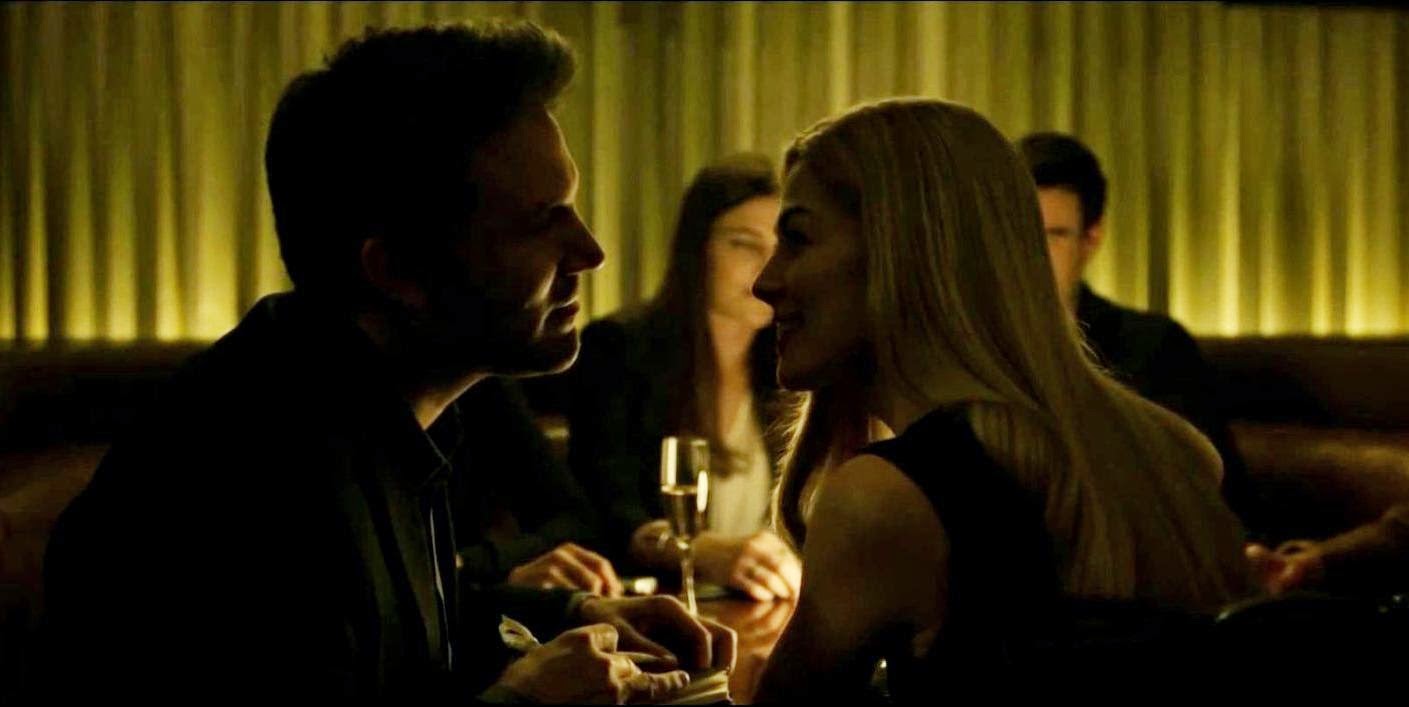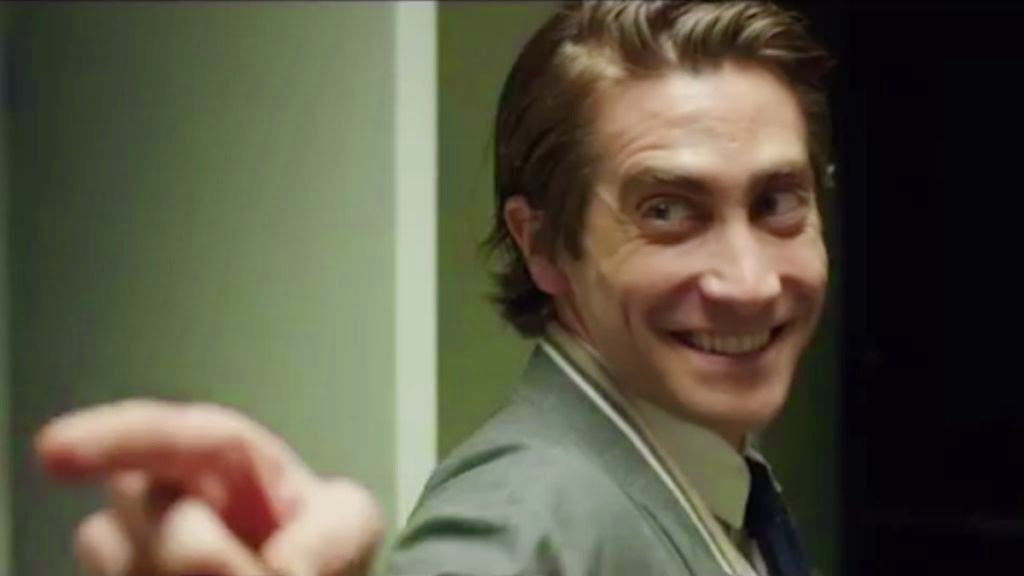The first category to be announced tonight is Best Production Design. With film being a predominately visual medium, production design is one of the most crucial elements of the filmmaking process. Whether it be a fantasy film, a period piece or contemporary cinema, special attention to color, props, background and more are paramount to a film's success.
The nominees for Best Production Design are:
Gone Girl
Production Designer: Donald Graham Burt
The Grand Budapest Hotel
Production Designer: Adam Stockhausen
Into the Woods
Production Designer: Dennis Gassner
Only Lovers Left Alive
Production Designer: Marco Bittner Rosser
Snowpiercer
Production Designer: Ondrej Nekvasil
-
-
-
-
And the Filmiest Award goes to:
The Grand Budapest Hotel
Simply put, The Grand Budapest Hotel is dripping with production design, and no other film comes close to surpassing its beauty. The vibrant colors in landscapes, the stylish wardrobe and the intricate details of every single frame make this film stick out in a year full of darker, grittier fare, even from the blockbusters.
_________________________________________________________
Next up we have the award for Best Costume Design. Like production design, costumes can greatly enhance the visual panache of a film. Attention to detail in costume design can help bring out the style of a particular era or create a memorable image of how a character is seen and remembered for the rest of time.
The nominees for Best Costume Design are:
The Grand Budapest Hotel
Costume Designer: Milena Canonero
The Hunger Games: Mockingjay, Part 1
Costume Designers: Kurt and Bart
The Immigrant
Costume Designer: Patricia Norris
Into the Woods
Costume Designer: Colleen Atwood
Only Lovers Left Alive
Costume Designer: Bina Daigeler
-
-
-
-
And the Filmiest Award goes to:
Into the Woods
While it is easy for a fantasy film to have wacky, over-the-top costumes, Into the Woods excels in displaying distinct costumes for its fairy tale characters while not being distracting. The muted tones for characters like Cinderella (Anna Kendrick) and the Baker's Wife (Emily Blunt) along with Red Riding Hood's (Lilla Crawford) striking red coat make for memorable looks, not to mention The Witch's (Meryl Streep) fabulous wardrobe.
_________________________________________________________
And now the award for Best Cinematography. The camera work on a film is essential to telling a coherent, interesting story. Innovative cinematography can actually enhance the story being told in unspoken ways, whether through placement of the camera or movement throughout a scene. These five films innovated in new and exciting ways.
The nominees for Best Cinematography are:
Birdman
Cinematographer: Emmanuel Lubezki
Gone Girl
Cinematographer: Jeff Cronenweth
The Grand Budapest Hotel
Cinematographer: Robert Yeoman
Ida
Cinematographers: Łukasz Żal & Ryszard Lenczewski
The Immigrant
Cinematographer: Darius Khondji
-
-
-
-
And the Filmiest Award goes to:
Birdman
Emmanuel Lubezki wins for the second year in a row for his wildly impressive cinematography in Birdman. With the entire film made to look like one continuous shot, the level of skill on display as the camera winds through the many hallways and outdoor scenes is astounding and gives the film the necessary feeling of putting on a play and all of the madness that ensues from this.
_________________________________________________________
We have now reached the big five awards. First up is the award for Best Screenplay. Without a well-structured or original screenplay, a film can be all style and no substance. The importance of a strong screenplay cannot be overstated in a film industry so willing to sacrifice story for extended action sequences with characters the audience doesn't care about. All five screenplays nominated represent originality and cleverness in the face of a changing industry.
The nominees for Best Screenplay are:
Wes Anderson for The Grand Budapest Hotel
Gillian Flynn for Gone Girl
Dan Gilroy for Nightcrawler
Alejandro G. Iñárritu, Nicolás Giacobone, Alexander Dinelaris, Jr., Armando Bo for Birdman
Richard Linklater for Boyhood
-
-
-
-
And the Filmiest Award goes to:
Gillian Flynn for Gone Girl
Flynn's Gone Girl novel is one of the wittiest pieces of fiction of the past few years, so when she was tasked with adapting her own novel for the big screen, there was little worry that she wouldn't do a good job. But in many ways, she actually proved herself to be an even better screenwriter. Each scene is drenched in irony, satire, pulpiness and suspense and everything after the epic twist reveal is just pure screenwriting genius. The now famous "Cool Girl" speech is already one for the ages.
_________________________________________________________
Next up is the award for Best Lead Actor. Each of the actors nominated this year truly went the extra mile in not only portraying their characters, but inhabiting them. An ambitious loner, an eager athlete, a lonely benefactor, an embittered artist and an iconic leader. These five actors were shining examples to their peers as the best actors of the year.
The nominees for Best Lead Actor are:
Steve Carell as John Eleuthère du Pont in Foxcatcher
Jake Gyllenhaal as Lou Bloom in Nightcrawler
Michael Keaton as Riggan Thomson in Birdman
David Oyelowo as Dr. Martin Luther King, Jr. in Selma
Channing Tatum as Mark Schultz in Foxcatcher
-
-
-
-
And the Filmiest Award goes to:
Jake Gyllenhaal in Nightcrawler
Nightcrawler would not be half the film it is without Gyllenhaal's total commitment in every single scene. Playing a power-hungry sociopath who has read way too many self-help books, Gyllenhaal is simply on another level compared to every other actor this year. Losing a significant amount of weight, he genuinely becomes Lou Bloom, the guy everyone knows who seems a little off but continues to rise to the top, a blood-thirsty psycho you don't want to mess with out of utter fear for your life.
_________________________________________________________
The final acting award is for Best Lead Actress. The five actresses nominated this year prove that there is still room for complicated women in leading roles in film. In a sea full of movies about men, for men and starring men, these actresses are beacons of hope. More importantly, however, they are all just great performances, carrying the weight of their films on their backs.
The nominees for Best Lead Actress are:
Marion Cotillard as Ewa Cybulska in The Immigrant
Scarlett Johansson as The Woman in Under the Skin
Rosamund Pike as Amy Elliott-Dunne in Gone Girl
Jenny Slate as Donna Stern in Obvious Child
Reese Witherspoon as Cheryl Strayed in Wild
-
-
-
-
And the Filmiest Award goes to:
Rosamund Pike in Gone Girl
The role of Amy Elliott-Dunne was one of the most widely sought after in Hollywood. It's tough to explain exactly why without spoiling Gone Girl, but needless to say, it's a fantastic part. What makes Pike's performance so special is that she brings such a cold, detachedness to a woman frustrated by life and ready to make a change. Amy is the poster child for the perfect suburban "cool girl," and Pike's steely resolve and near psychopathic line delivery makes her pop off the screen in a surprising way. While other actresses would go completely over the top with the role, Pike's eerie calmness turned this into the most chilling and memorable performance of the year.
_________________________________________________________
The second-to-last award in this presentation is Best Director. The acting, writing, cinematography, editing, score, production design and sound design are all essential elements of filmmaking, but the director is the one who brings them all together. A poorly directed film is one that is unable to create a wholly engaging piece of art for the audience. But a smart director knows the right elements needed for the story to reach its full potential. Each of these five nominated directors can say that they've created thought-provoking pieces of art through their careful guidance.
The nominees for Best Director are:
Wes Anderson for The Grand Budapest Hotel
David Fincher for Gone Girl
Jonathan Glazer for Under the Skin
Jim Jarmusch for Only Lovers Left Alive
Richard Linklater for Boyhood
-
-
-
-
And the Filmiest Award goes to:
Richard Linklater for Boyhood
Epitomizing the necessity of auteur filmmaking, Linklater is the type of director who cannot be separated from the films he makes, and Boyhood is his masterpiece. Filming the same actors every year for 12 years and piecing them together is a monumental project that could have gone wrong at any moment, so the fact that it not only came together in the end but that it's also a great movie is a modern miracle. Beyond the concept though, the simple, naturalistic dialogue present throughout the film along with the seamless editing that makes the whole experience fly by proves the confidence Linklater had in this simple, arguably universal story. No other director could have told the story of Boyhood and yet he makes it feel like my story, your story and pretty much all of our stories.
_________________________________________________________
And now we come to the award that everyone has been waiting for: Best Picture of the Year. This award goes to the movie I believed to be the absolute best of the year while also taking into account my own personal taste. It was a fantastic year in movies, and the five I've nominated here have already become modern-day classics for me and many others. But only one can win.
The nominees for Best Picture of the Year are:
-
-
-
-
-
-
-
-
-
-
-
-
-
-
-
-
-
-
-
-
And the Filmiest Award goes to:
BOYHOOD
OK. Time to get personal. Unlike anything I have ever seen, Boyhood is an intensely personal yet universal film. Its beauty is wrapped up in individual scenes and moments that may not seem "exciting" on the surface, but that is essentially the point. The film follows the life of Mason (Ellar Coltrane) over the course of 12 years, from the age of six to 18, in addition to his mother (Patricia Arquette), his father (Ethan Hawke) and his sister (Lorelei Linklater). The moments shown in each of those 12 years are not particularly extraordinary in the traditional sense. We never see his first kiss, his first job interview, his high school graduation. Instead, we are shown beauty in the ordinary moments of life growing up, when days seem endless. And yet, by the end of the film, a full 12 years after its beginning, there is a sense that it all flew by so fast. Too fast. Despite a near three-hour running time, it never feels too long. If anything, I wanted to see more of Mason and of his family; I longed for those moments of quiet wonder when Mason was a child, even if his home-life was far from perfect.
Some characters may feel like stock characters (the abusive drunk stepdad) seen in other family dramas, but those characters are found in real life too. There is honesty in each and every scene of Boyhood that cannot be found in a sea of Transformers and run-of-the-mill superhero movies. A movie like this is special, yet not for any of the obvious reasons that make it special. No individual scenes elevate the film beyond any other family drama, yet the construction and execution completely overwhelmed me by the film's end. No other movie in 2014 tops Boyhood in reflecting the honesty of life and growing up, and for that it is the Best Picture of the Year.
_________________________________________________________
Thank you so much for reading my award winners for the year 2014 in film. Here's to a promising and fruitful 2015!
You can now view a database of every Filmiest Award winner and nominee since 2012 by clicking here.

























